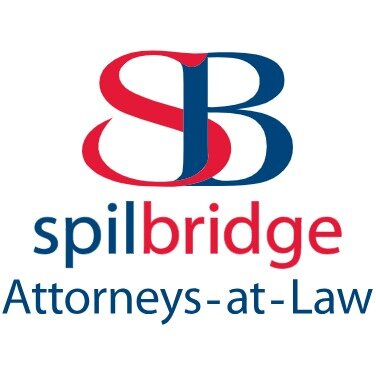Best Natural Resources Lawyers in Latvia
Share your needs with us, get contacted by law firms.
Free. Takes 2 min.
Or refine your search by selecting a city:
List of the best lawyers in Latvia
About Natural Resources Law in Latvia
Latvia boasts a rich array of natural resources, including forests, mineral deposits, inland waters, and fertile agricultural land. Natural resources play a vital role in Latvia's economy and cultural heritage. The Latvian government regulates the use and conservation of these resources to ensure sustainable development and environmental protection. Laws concerning natural resources in Latvia encompass a wide range of issues, from land use and water management to forestry and mining activities.
Why You May Need a Lawyer
Legal issues surrounding natural resources can be complex due to the intricate web of local, national, and European Union regulations. You may need a lawyer in the following situations:
- Acquiring or leasing land for agriculture or forestry.
- Engaging in mineral extraction or gravel quarrying.
- Navigating water rights and using inland water bodies for business purposes.
- Compliance with environmental regulations and facing potential disputes or penalties.
- Disputes over land use, rights, and zoning with neighbors or authorities.
- Participating in public hearings or consultations related to natural resource management projects.
Local Laws Overview
Natural Resources Law in Latvia involves several key legal frameworks:
- Forest Law: Governs the management, conservation, and use of forest resources.
- Water Management Law: Regulates water usage rights and pollution control measures.
- Land Use Law: Establishes guidelines for land development, zoning, and usage.
- Mineral Deposits Law: Covers exploration, extraction, and use of mineral resources.
- Environmental Protection Law: Provides a framework for safeguarding the natural environment.
Each of these legal frameworks contains specific rules, licensing requirements, and restrictions pertinent to various sectors, impacting individuals and businesses interacting with natural resources.
Frequently Asked Questions
What are the main natural resources available in Latvia?
Latvia's main natural resources include forests, water bodies, agricultural lands, peat, dolomite, clay, and other mineral deposits.
Can foreign nationals own land in Latvia for natural resource purposes?
Yes, foreign nationals can own land in Latvia, but certain restrictions and requirements may apply, especially for agricultural and forestry lands.
What is the process for obtaining mineral rights in Latvia?
Obtaining mineral rights involves applying for a permit from the Latvian Ministry of Environmental Protection and Regional Development, followed by environmental assessments and compliance with local regulations.
How are water rights regulated in Latvia?
Water rights in Latvia are regulated through permits and licenses issued by the local municipalities and relevant authorities, ensuring sustainable and equitable use.
What are the penalties for non-compliance with environmental regulations in Latvia?
Penalties can range from fines to corrective action mandates, and in severe cases, criminal charges may be applied for significant environmental damage or negligence.
How can I navigate a dispute over land use?
Disputes can be resolved through mediation, legal negotiation, or litigation, often requiring the expertise of a lawyer specializing in Latvian property and environmental law.
What is Natura 2000, and how does it affect land management?
Natura 2000 is a network of protected areas in the EU aimed at biodiversity conservation. It imposes additional restrictions and requirements for land and resource management.
Are public consultations required for natural resource projects?
Yes, public consultations are often required to assess environmental impact and gather public input before initiating major resource development projects.
How are forest resources managed and regulated?
Forests are managed through the Latvian State Forest Service, which enforces laws related to logging, reforestation, and sustainable practices.
Where can I find more information on specific natural resource laws?
Information can be found on governmental websites, legal databases, or by consulting with professionals specializing in Latvian natural resources law.
Additional Resources
For further information and assistance, consider these resources:
- The Ministry of Environmental Protection and Regional Development of Latvia
- Latvian State Forest Service
- Natural Resources Agency of Latvia
- Local environmental and legal consultancies
- The Latvian Public Services Regulatory Commission
Next Steps
If you require legal assistance regarding natural resources in Latvia, consider taking the following steps:
- Consult with a lawyer specializing in environmental and natural resources law.
- Gather necessary documentation and details of your situation for a comprehensive legal assessment.
- Explore initial consultations or advisory sessions to understand your legal standing and options.
- Consider joining relevant local associations or advocacy groups for guidance and support.
By following these steps and utilizing these resources, you can effectively navigate the complexities of natural resource laws in Latvia and protect your rights and interests.
Lawzana helps you find the best lawyers and law firms in Latvia through a curated and pre-screened list of qualified legal professionals. Our platform offers rankings and detailed profiles of attorneys and law firms, allowing you to compare based on practice areas, including Natural Resources, experience, and client feedback.
Each profile includes a description of the firm's areas of practice, client reviews, team members and partners, year of establishment, spoken languages, office locations, contact information, social media presence, and any published articles or resources. Most firms on our platform speak English and are experienced in both local and international legal matters.
Get a quote from top-rated law firms in Latvia — quickly, securely, and without unnecessary hassle.
Disclaimer:
The information provided on this page is for general informational purposes only and does not constitute legal advice. While we strive to ensure the accuracy and relevance of the content, legal information may change over time, and interpretations of the law can vary. You should always consult with a qualified legal professional for advice specific to your situation.
We disclaim all liability for actions taken or not taken based on the content of this page. If you believe any information is incorrect or outdated, please contact us, and we will review and update it where appropriate.
Browse natural resources law firms by city in Latvia
Refine your search by selecting a city.













